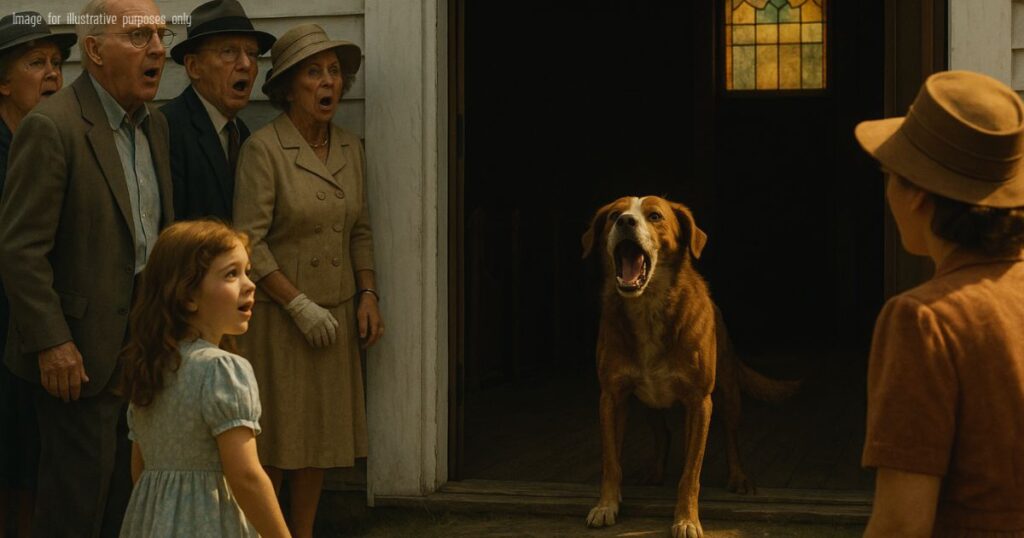Part 7: The Space That Holds Us
High Summer 1978 – McCall, Alabama
By August, Mercy’s pew had become something more than a seat.
It was sanctuary inside a sanctuary.
People began arriving early, not to claim it—but to sit near it.
To leave behind the pieces they didn’t know how to carry anymore.
Cracked photos. Dog tags. Prayer cards. Dried flowers tied with ribbon. Even a folded paper crown from a birthday party someone never got to celebrate.
No one took anything.
No one judged.
They just added, honored, and left room for the next.
Elsie had taken to calling it the soft place.
She didn’t tell anyone that when she couldn’t sleep, she’d sneak into the church through the back window, curl on that cushion with Mercy’s collar looped around her wrist, and whisper to the dark.
She never felt alone there.
Never cold.
It was as if Mercy’s body had warmed the space forever.
As if some part of him—of Scout, of Clarence—had sunk into the wood grain and stayed.
One morning, just past sunrise, Elsie found Preacher Myron already sitting there.
His glasses were off. Eyes red. Hands shaking.
He didn’t flinch when she stepped in barefoot, wearing her nightgown and dragging a blanket.
He just looked at her and said, “I had a son. He died before you were born. His name was Charlie. He hated church.”
Elsie blinked. “Why?”
“Because it never made room for him.”
She sat beside him.
“And now?”
Myron smiled faintly. “Now… it’s all room.”
That week, a letter came in the mail, addressed only to:
“Mercy, c/o McCall First Baptist Church.”
Inside was a single photograph.
A man in his twenties holding a dog.
Big. Brown. One ear flopped.
A white stripe down the nose.
On the back, written in looping script:
“To whoever loved him last—thank you.
He ran off during my divorce. I searched for months.
His name was Chance.”
Jewel read it aloud at the next service.
The sanctuary was silent as stone.
Then someone whispered, “Chance.”
Then another.
And another.
Until the room echoed softly with the name.
Preacher Myron stepped up, voice low.
“Mercy. Chance. Scout. Whatever his name was… he carried more than any of us ever could. And he didn’t ask us to fix him. Just to see him. Just to let him lie beside our grief without rushing it out the door.”
Elsie leaned into her mama’s shoulder, whispering:
“Maybe he was all three.”
Jewel kissed her forehead. “Maybe we were, too.”
That afternoon, Elsie brought a new item for the pew.
Not something lost—but something saved.
A drawing.
One she’d been working on for weeks.
It showed Clarence with Scout, sitting on the pew, side by side.
And in front of them—Mercy, curled up at their feet.
Behind them? The whole town. Standing. Watching. Remembering.
She laid it on the cushion.
Weighted it with the collar.
And left a note folded beneath the sketch.
“The pew remembers.
Because we remember.
And we make room.”
That night, it rained again.
And though no one heard a bark or saw a tail flick through the lightning, the next morning, a new flower bloomed beside the front steps.
A wild sunflower.
Golden, tall, and reaching toward the sky like a song unfinished.


